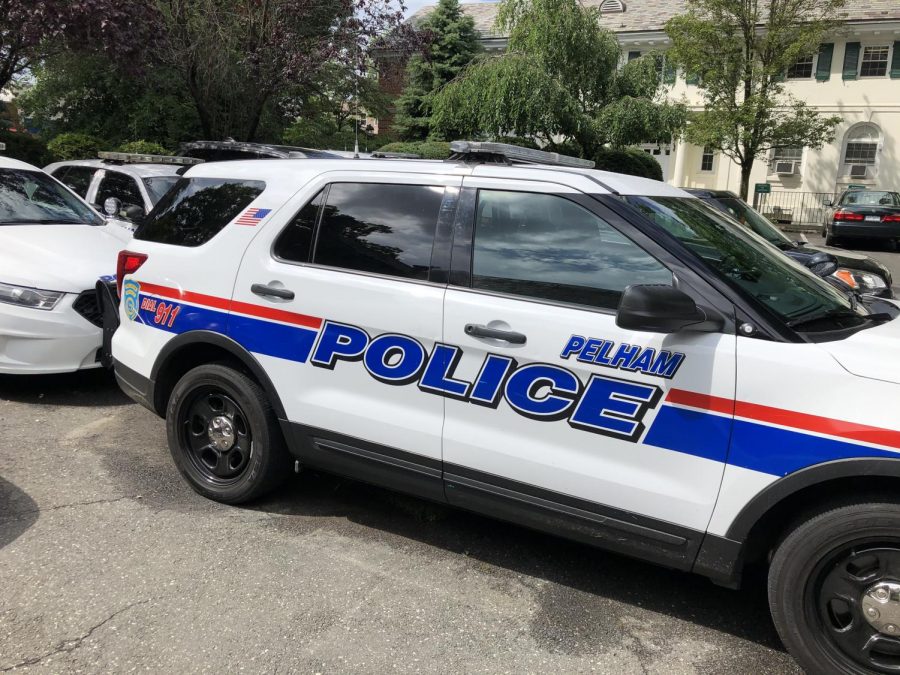Village of Pelham police steering committee will meet behind closed doors; here’s what you’ll miss
The ten-member Village of Pelham Steering Committee on Local Policing will meet in private for at least some sessions because it is not a public body as defined by the state Open Meetings Law.
On this Pelham Mayor Chance Mullen and the New York State Committee on Open Government agree, except for perhaps one point. Mullen and Trustee Ariel Spira-Cohen will serve on the panel, while other trustees will periodically join “to discuss different elements of the village government,” according to a statement by Mullen.
If four or more members of the village board are present, the meeting will constitute a meeting of the village board and must follow the Open Meetings Law. Since it was Mullen’s decision to meet in private, presumably this won’t happen. He could also have decided to hold all the sessions open to the public and press.
“This collaborative working group of residents is not a public body, so not every meeting will be open to the public but, as always, transparency will be prioritized,” Mullen said in an email. “This is a steering committee of private residents who will work with me to identify impacts being experienced locally (some of that conversation needs to be confidential, for the sake of the participants) and develop recommendations that will be delivered to the board for inclusion in the village’s action plan.”
Perhaps most importantly, the issues Mullen highlighted illustrate what residents will miss out on as the village faces the contentious issue of structural racism in the police department. They will not hear firsthand the reasons behind policy changes and other recommendations to the village board, as well as incidents of alleged racism by the village police that may be brought forward by the six civilian members of the panel.
“Some of the committee’s work will include a desk review of various policies to identify issues that need further examination by the board (and the public), and also to identify places where deeper discussion is not necessary, or changes may not be possible,” Mullen said. “To be clear: the existence of this group is not intended to conceal the review but to focus it. The steering committee is working to develop an agenda, identify priorities and determine ways to create productive dialog with the community. All of that information will be released as soon as it’s ready.”
In essence, residents won’t be in the room when it happens.
The steering committee consists of Pelham residents Krystal Howell, Okey Obudulu, Teisa Salmon, Ella Stern, Veronica Stern and Jeff Watkins, as well as the mayor, Spira-Cohen (who is liaison to the police department), Village Administrator Omar Small and Police Chief Jason Pallett.
The committee is the village’s first step in fulfilling Governor Andrew Cuomo’s executive order requiring municipalities develop an action plan to build trust among residents and ensure accountability in local policing. That plan must be approved by the village board by next April.
Cuomo’s executive order as well as a package of legislation Cuomo signed were all responses to the killing of George Floyd, a Black man, during an arrest in Minneapolis and protests that followed. Floyd died when Police Officer Derek Chauvin held him down by his pressing knee on Floyd’s neck for more than eight minutes. Chauvin is charged with second-degree murder and second-degree manslaughter, while three other officers at the scene face charges of aiding and abetting second-degree murder.
“We wanted the white residents of Pelham to get a glimpse into the black experience and open up conversations on race that are typically swept under the rug in our town,” Veronica Stern, a march organizer, said at the time. She is a member of the Pelham steering committee.
The “Pelham’s Laundry” installation at the Pelham Art Center displayed Facebook posts describing racist incidents that had happened to local residents, including those involving members of the police department. Names were blotted out, and the stories in the posts have yet to be confirmed.
“We have begun to hear, some of us for the first time, stories of differential, racist treatment of persons of color in Pelham at the hands of Pelham police officers, teachers, school administrators and fellow Pelham residents,” the Pelham Democratic Committee said in a letter to all of the town’s government bodies July 2. (Mullen is a Democrat.) Among other problems the Democrats cited were “that Pelham police officers have referred to Pelham youth as thugs; that black and other minority students are disproportionately subject to school residency checks by police… that our black and brown neighbors in Mount Vernon, New Rochelle and the Bronx expect to be targeted by the police in Pelham and consider us a racist town.”
As a first step, the letter called for a public meeting with town, village, school board and police officials “to address first-hand accounts of racial injustice in Pelham.” It also said organizations and the community should set the goal of creating a transparent system for reporting and addressing racist incidents.
“Sunlight is often the best antiseptic,” said Pelham Superintendent Cheryl Champ in announcing the school district’s own plans to bring in a New York University group to help deal with structural racism.
Rich Zahradnik is the executive director and board chairman of the Hudson Valley Local News Lab Inc., a 501(c)(3) nonprofit that publishes the Pelham Examiner,...
Katja Fair participated in the science research program with an interest in neurology and animal science and has completed two independent research projects...
Margot (MJ) is attending the University of California, San Diego as a biological anthropology major. She can be found in the loggerhead sea turtle tank...






Maryanne Joyce • Jul 25, 2020 at 9:19 pm
It’s an interesting question whether the committee is subject to the Open Meetings Law. Some info on that topic here: https://www.rcfp.org/open-government-guide/new-york/#6-advisory-boards-and-commissions-quasi-governmental-entities.
I do hope at least some of the committee’s meetings will engage the broader community.
The Governor’s press release said: “Police forces must adopt a plan by April 1, 2021 to be eligible for future state funding and certify that they have: Engaged stakeholders in a public and open process on policing strategies and tools.” See https://www.governor.ny.gov/news/governor-cuomo-signs-executive-order-reinvent-and-modernize-police-strategies-and-programs.
And the Executive Order says: “Each chief executive of such local government shall convene the head of the local police agency, and stakeholders in the community to develop such plan… [and] … The political subdivision, in coordination with its police agency, must consult with stakeholders, including but not limited to membership and leadership of the local police force; members of the community, with emphasis in areas with high numbers of police and community interactions; interested non-profit and faith-based community groups; the local office of the district attorney; the local public defender; and local elected officials, and create a plan….” See https://www.governor.ny.gov/news/no-203-new-york-state-police-reform-and-reinvention-collaborative.
Mike Carpenter • Jul 24, 2020 at 4:49 pm
Ms. Phillips, Ms. Fair, and Mr. Zahradnik,
First, thank you and the Pelham Examiner for the continued coverage of this important topic and the steps that the Village and School are taking at this critical time. I look forward to the same level of coverage on the Town and Village of Pelham Manor.
Second, I would like to ask you to reconsider part of your message here. In your article you claim that “…residents won’t be in the room when it happens.” However, the very next line states, “The steering committee consists of Pelham residents Krystal Howell, Okey Obudulu, Teisa Salmon, Ella Stern, Veronica Stern and Jeff Watkins…” How can it be both ways?
I am not on the steering committee. And I support Mayor Mullen’s decision to allow the committee to work independently and behind closed doors as needed. In my experience, people can be reluctant to speak openly in public or when reporters are taking notes, especially when the conversation is difficult or uncomfortable. But, without honest discourse, I don’t know how we move forward in a meaningful way. I also know that the Mayor is cognizant of the Open Meetings Law and will structure these discussions with that in mind.
Lastly, I know that the Village Board of Trustees will not take any action on this matter without doing so in a public meeting. While I’m only one of seven, I will ask that any action under consideration be presented and discussed as openly and transparently as possible, just as the Mayor intends.
Your sincerely,
Mike Carpenter